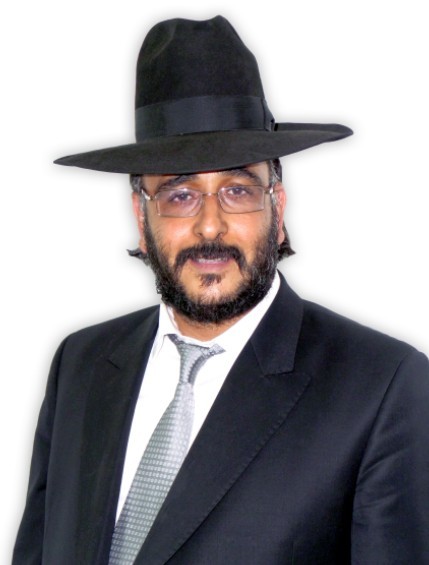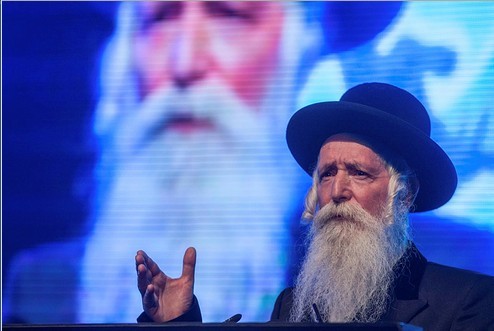Rabbi Pinchas Badush Presents: Recreational Activities with a Torah Spirit
Initially venturing into youth rehabilitation by chance, he is now a recognized guide and influencer in the field. Though he comes from an Orthodox background, he profoundly understands today's youth. Here are some of his tips in an interview with Rabbi Pinchas Badush.

Meet Rabbi Pinchas Badush, 38, from Beit She'an – a man of many initiatives engaged in outreach, working tirelessly for the welfare and advancement of tens of teenagers:
"Sixteen years ago, I joined the 'Tiferet Tiberias' kollel under the Wolfson Foundation, which was looking for young scholars to fill the kollels while also integrating into the community," Badush describes the start of his journey as a mentor and spiritual influencer. "I began giving evening classes to householders, but gradually, one by one, teenagers began attending, seeking to quench their spiritual thirst. The gathering's reputation quickly spread, and as the class grew, attracting more and more teenagers, I took the initiative and founded the 'Chanoch Lan'ar' organization. I wanted these youngsters to have a place that combined spiritual and social activities."
 Rabbi Pinchas Badush, engaged in holy work
Rabbi Pinchas Badush, engaged in holy workHe said and did. With his own ten fingers, Rabbi Badush began to orchestrate activities and advance the project. Shortly after, what started as a personal initiative gained momentum, penetrating the consciousness of numerous donors who joined the effort and raised funds to purchase state-of-the-art equipment for the youth's benefit. "The goal was to ensure that the teenagers channel their energy in a kosher way, so we bought the best equipment: snooker tables, tennis, hockey, everything that interests teenagers at that age."
After two years of the unique 'club' operating in Beit She'an, Rabbi Avraham Yitzchak Greenbaum, chairman of the Wolfson Foundation, decided to replicate the concept in other cities and establish a national youth movement to coordinate similar social activities for teenagers across the country. Concurrently, the 'Or Israeli' network was established under Rabbi Yitzchak David Grossman, and Badush was appointed to oversee guidance and advice in setting up its branches. "The movement works in cooperation with the 'El HaMaayan' organization, sparking a transformation in many cities and achieving unprecedented results. In Beit She'an alone, over 200 secular boys have entered yeshivot—we even accompanied some to ultra-Orthodox weddings, and there's more to come. I believe the number will soon double and even triple."
Though Rabbi Badush himself grew up and was educated in the ultra-Orthodox yeshivot world, it doesn't prevent him from deeply understanding the young boys' worlds and helping them. He describes numerous obstacles he faced, as with any sacred endeavor, but Rabbi Badush is not one to despair. "Once a boy has tasted the flavor of holiness, he no longer wishes to return to where he was before. Our job is to guide and support him in facing various challenges he encounters at the start of his journey. Sometimes there is fierce parental opposition, despite the child having chosen the path of Torah and mitzvot and being at peace with it. However, there's no such thing as a parent holding onto their opposition over time because all parents unequivocally see how positively their children change. Then their trust in us as a team grows, and sometimes a parent even turns us into their confidant. There have been instances where a parent wanted to convey a message to their child but didn't know how, and sought our assistance, which we always provide indirectly so as not to harm the child."
Solution for Disaffected Youth: A Lot of Love
In parallel with the regular framework, the organization also runs a special program for disaffected ultra-Orthodox youth who have 'funneled' into it from various settings. "Since this involves youth who are on a downward spiritual trend, the method of working with disaffected youth leans more towards stopping the decline – namely, 'depart from evil'."
With sensitivity, attention, and prayer, Rabbi Badush creates a good social framework for the boys, a sort of 'home' where they can feel a sense of belonging and closeness. "After we earn their trust by attending to their emotional and physical needs and arresting the decline, only then does the 'do good' work begin. Thank Hashem, not a day goes by without progress with these teenagers. In most cases, they return to the path, enter small yeshivot, and start anew. It's indescribably moving to witness."
 Rabbi Badush at a Purim party with teenagers (Archive photo: Netanel Heron)
Rabbi Badush at a Purim party with teenagers (Archive photo: Netanel Heron)As you see it, what causes this phenomenon of disaffected ultra-Orthodox youth seeking alternatives in the secular world?
"Of course, each case is unique, and it's impossible to tie all cases to one specific cause. However, from what I have learned and internalized over years of engagement in outreach and bonding hearts, I can tell you that most of the disaffected boys who came through our ranks showed symptoms of deficiencies (mainly emotional) not addressed in time. The greatest deficiency of all, in my opinion, is that they were taken for granted. I believe this is where the root of the problem lies: When we as a society, be it parents or educators, expect these boys to approach Torah and mitzvot as 'routine commands', prohibiting them from asking questions of faith just because they are raised ultra-Orthodox and are supposed to believe without questioning – we essentially deny them the right to express who they are. That's where the problems start.
"It's true that many yeshivot have deep ethical talks capable of answering many questions of faith, but apparently in our generation, we need to talk to ultra-Orthodox youth the same way we talk to secular youth. How? With a lot of emotion alongside intellect. I would even go so far as to recommend organizing Jewish seminars for ultra-Orthodox youth, just like those provided for secular youth. Just because someone grew up with and was educated in Torah from infancy doesn't mean they don't need strengthening in faith, scientific alongside Torah proofs of the Torah's truth, and the like. The ultra-Orthodox youth conducts their Torah and mitzvot observance by inertia, and over time, can become worn out. Therefore, they require constant reinforcement of emotion and love alongside intellect and reasoning."
But didn't we always have education this way? Yeshivot always taught ethics, and the education method was always specific. Why does it seem that in our generation we suddenly need to change the approach?
"Not to change, but to adapt the content and messages in a way you want to transmit them. Education must be conducted with love and emotion. What leads the secular youth to a spiritual phase change in life is the personal attention they receive from us, attention that puts them in the spotlight and gives them the feeling that what they feel, think, and ask is the most important thing in the world."
 Rabbi Yitzchak David Grossman, engaged in education for many years
Rabbi Yitzchak David Grossman, engaged in education for many years"Moreover, if this phenomenon of disaffected youth is so extensive, it's likely that a boy entering a yeshiva today is not the same as one 20 years ago. Exposure to modernization affects us all to such an extent that today, there are no guarantees, and everything must be tried to save our children. Yes, even if it means allowing them to ask questions that, had you asked in your day, you'd risk being expelled from yeshiva."
Finally, as someone so heavily involved in education, what do you think is the 'golden path' in education, and how can we avoid the scenario of disaffected ultra-Orthodox youth?
"As someone who grew up in the yeshivot world, I think it's wonderful that yeshivot are built intellectually. However, it must be understood that learning or striving to instill values must not come at the expense of the teacher-student relationship. The teacher-student relationship must be one of closeness and love, and once a student loves and admires their teacher, they will naturally do everything not to disappoint them. Who is greater than Aaron the priest, the master of outreach, who said 'Love humanity and bring them closer to the Torah' – love must precede outreach."

